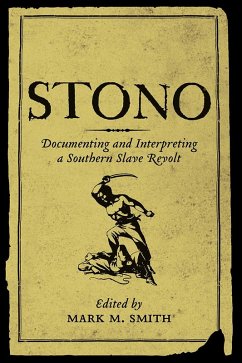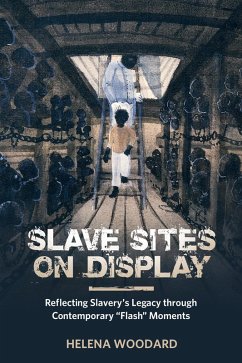
Rebellious Histories (eBook, ePUB)
The Amistad Slave Revolt and the Cultures of Late Twentieth-Century Black Transnationalism
Versandkostenfrei!
Sofort per Download lieferbar
25,95 €
inkl. MwSt.
Weitere Ausgaben:

PAYBACK Punkte
13 °P sammeln!
Traces the emergence of creative texts focusing on the nineteenth-century slave trade to make sense of the radicalized effects of global capitalism.From the early 1970s to the mid-1990s, playwrights, novelists, filmmakers, visual artists, and prison writers from Sierra Leone and the United States brought a new attention to the events of the 1839 Amistad shipboard slave rebellion. As a testament of the human will to freedom, the story of the Amistad mutineers also describes the wide arc of the international circuits of capital, commerce, juridical power, and diplomacy that structured and reprod...
Traces the emergence of creative texts focusing on the nineteenth-century slave trade to make sense of the radicalized effects of global capitalism.
From the early 1970s to the mid-1990s, playwrights, novelists, filmmakers, visual artists, and prison writers from Sierra Leone and the United States brought a new attention to the events of the 1839 Amistad shipboard slave rebellion. As a testament of the human will to freedom, the story of the Amistad mutineers also describes the wide arc of the international circuits of capital, commerce, juridical power, and diplomacy that structured and reproduced the Atlantic slave trade for nearly four centuries. In Rebellious Histories, Matthew J. Christensen argues that for creative artists struggling to comprehend-and survive-pernicious manifestations of globalization like Sierra Leone's civil war, the Amistad rebellion's narrative of exploitative resource extraction, transatlantic migrations, armed rebellion, and American judicial intervention offers both a historical antecedent and allegory for contemporary global capitalism's reconfiguration of culture and subjectivity. At the same time, he shows how the mutineers' example provides a model for imagining utopian forms of transnationalism. With its wide-ranging comparative approach, Rebellious Histories brings a unique perspective to the study of the cultural histories of both slave resistance and globalization.
From the early 1970s to the mid-1990s, playwrights, novelists, filmmakers, visual artists, and prison writers from Sierra Leone and the United States brought a new attention to the events of the 1839 Amistad shipboard slave rebellion. As a testament of the human will to freedom, the story of the Amistad mutineers also describes the wide arc of the international circuits of capital, commerce, juridical power, and diplomacy that structured and reproduced the Atlantic slave trade for nearly four centuries. In Rebellious Histories, Matthew J. Christensen argues that for creative artists struggling to comprehend-and survive-pernicious manifestations of globalization like Sierra Leone's civil war, the Amistad rebellion's narrative of exploitative resource extraction, transatlantic migrations, armed rebellion, and American judicial intervention offers both a historical antecedent and allegory for contemporary global capitalism's reconfiguration of culture and subjectivity. At the same time, he shows how the mutineers' example provides a model for imagining utopian forms of transnationalism. With its wide-ranging comparative approach, Rebellious Histories brings a unique perspective to the study of the cultural histories of both slave resistance and globalization.
Dieser Download kann aus rechtlichen Gründen nur mit Rechnungsadresse in A, D ausgeliefert werden.













